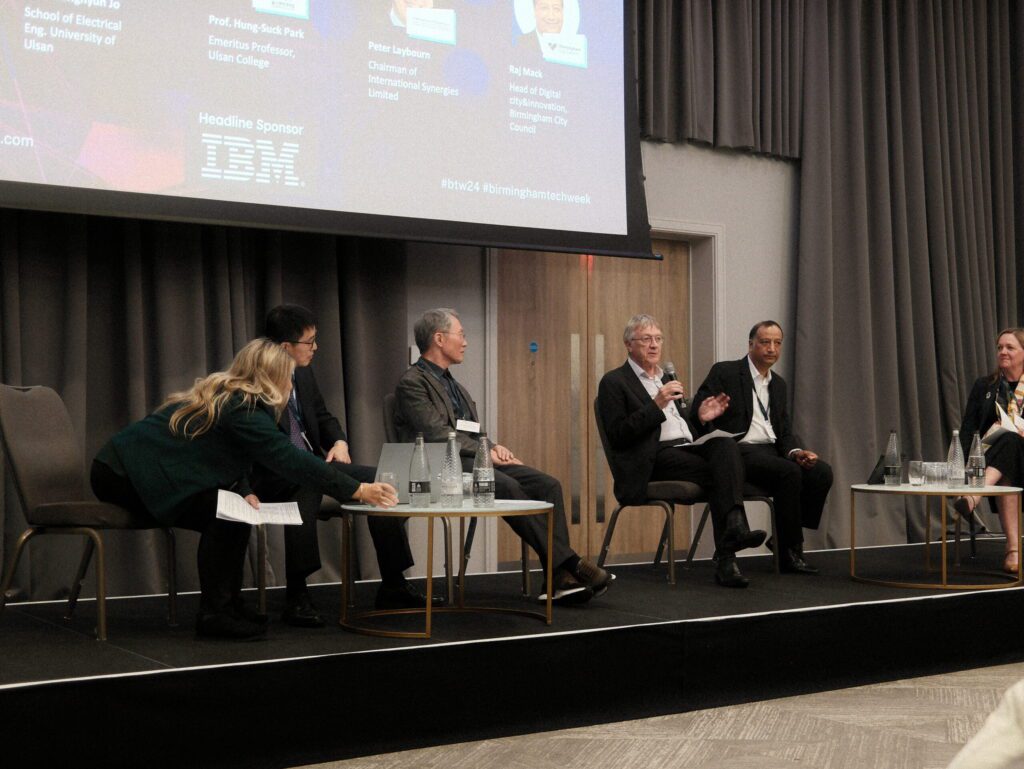COP 29 … strengthening cities’ contribution to NDC implementation and delivery
November 11, 2024 2 min read. NewsHow quickly the COPs come around! Naturally, we find both persistent themes and new items on the agenda. What has caught our attention is the required revision on Nationally Determined Contributions (NDCs) and progress on the Coalition for High Ambition Multilevel Partnerships (CHAMP).
In recent months, reports from institutions including the WBCSD, UNEP, UNIDO, UN Global Compact and International Resource Panel have advocated all nations to adopt an industrial symbiosis (waste is just a resource in the wrong place) approach to address climate, materials security, cost and carbon reduction. The 20+ years’ experience of facilitated industrial symbiosis in the UK and the Republic of Korea (RoK) has proven industrial symbiosis’ effectiveness at delivering Scope 3 reductions in a cost-effective manner.

International Synergies in collaboration with Birmingham City Council and the City of Ulsan, RoK with support from STEAMhouse, are preparing a high-level Guide for Cities and Regions to industrial symbiosis that documents the benefits of an industrial symbiosis approach. This practical guidance for cities and regions draws on a vast knowledge base born of experience unlocking this immense potential

The Guide (available early 2025) is a key resource emanating out of the UK/RoK collaboration currently enabled by DIATOMIC (an accelerator programme that supports small and medium-sized businesses in the West Midlands region of the UK, funded by Innovate UK and West Midlands Combined Authority and run by Connected Places Catapult). The need for the Guide was ratified during workshops and meetings between practitioners and policy makers from the UK and RoK at Birmingham Tech Week in October 2024.
The context presenting this extraordinary opportunity to reduce Scope 3 carbon emissions across manufacturing and construction is the 70% of industrial emissions that fall into the Scope 3 category. Industrial symbiosis is particularly effective at reducing Scope 3 emissions following the philosophy that waste is just a resource in the wrong place. Studies such as that from Oxford’s Centre for Reduction in Energy Demand Solutions (CREDS) have shown that the greatest potential for greenhouse gas (GHG) mitigation is still RESOURCE EFFICIENCY as epitomised by industrial symbiosis. GHG mitigation is just one of the many benefits of this approach that also includes waste reduction, job creation, water reduction, demand-led innovation, and generation of gross added value (GVA) to name a few.

We wish all success to participants in COP 29 and urge them to incorporate industrial symbiosis and eco-industrial development in their recommendations to meet the ambitions of the new NDCs and CHAMP. We know how to do this well, we know how to deliver impact today, and have proven this approach in countries literally around the globe. It is time to move to implementation – implementation changes reality. To quote the OECD, industrial symbiosis is ‘systemic innovation vital for future green growth’.
